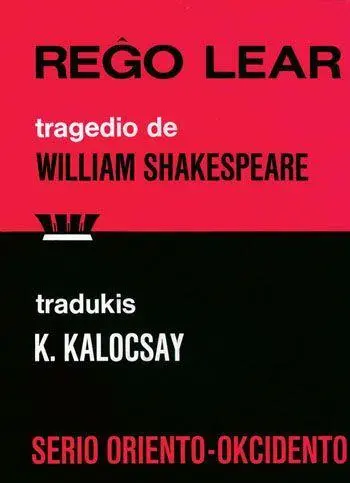Today, Esperanto is used by anything between 10,000 and 2 million people worldwide. It’s the most widely spoken constructed language in the world, and the only one which has native speakers, i.e., those who have learned from parents (such as the financier George Soros). It has been criticized for being too European-based in its vocabulary and grammar and therefore more difficult for, say, Asians to learn, but that hasn’t stopped usage being particularly high in countries like China, Japan and Korea, as well as in Europe. Just as clearly, Esperanto hasn’t realized its founder’s vision of becoming a universal second language and bringing peace and unity among nations. It’s too magnificent and impossible a dream. In that sense, Esperanto is the linguistic equivalent of a utopian world.
Zamenhof set out to construct a language which would be simple and easy, and various studies have suggested it can be learned in between a quarter and a twentieth of the time of other languages. If you surf the web, you’ll find dozens of associations, clubs, articles, sites for learning and testimonials from Esperanto-speakers that learning Esperanto is easy and pain-free.
The popularity of Esperanto in Asia is curious, given its predominantly European vocabulary and grammar roots. Maybe it’s the vision thing which appeals more, the idea of universal brotherhood and world peace. It’s a kind of quasi-religious belief, which might explain why several small, non-traditional religions and sects have embraced Esperanto. Like Oomoto, for example, an offshoot of Shintoism, which was founded at the end of the nineteenth century. Not only do most of its 45,000 adherents speak some Esperanto but they venerate Ludovic Zamenhof as a saint and visionary.
Other religions also espouse the Esperantist philosophy, including Bahá’í, which was the adopted faith of Zamenhof’s youngest daughter, Lydia. Lydia was born in Warsaw in 1904, learned Esperanto from the age of nine, took a law degree and then travelled the world promoting Esperanto and her father’s philosophy of brotherhood. She became a Bahá’í in the 1920s and continued to work, teach and promote both religion and language. While she was in Poland teaching Esperanto and translating Bahá’í scripture she was arrested by the Nazis because of her Jewish background and died in Treblinka in 1942.
Every single one of Zamenhof’s children died in the Holocaust. His son, Adam, became an ophthalmologist like his father and was head of a hospital in Warsaw. He was arrested in 1939 and sent to Palmiry camp, where he was shot. His younger sister Sofia, a paediatrician, also died in Treblinka in 1942.
There are other names honoured in the Esperanto community. Petr Ginz was an immensely gifted Czech boy, a native speaker of Esperanto and a Jew. He wrote stories, drew and produced an Esperanto magazine called Vedem (We Lead). Before he was transported to Auschwitz, where he died in 1944, he passed on some of his writings and artwork to his sister, including a drawing called ‘Moonscape’ — a view of the earth from an imagined moon. Nearly seventy years later, in 2003, the first Israeli astronaut, Ilan Ramon, took a copy of that drawing on board the space shuttle Columbia . At the end of its sixteen-day mission, Columbia exploded on re-entry, and all seven astronauts were killed. A special stamp issued in memory of the shuttle featured a reproduction of Petr’s sketch and a picture of him, young and smiling and happy.
Although the world does not speak Esperanto, millions of words of world literature have been translated into Esperanto, from the works of Shakespeare to the Koran. The Scottish Esperanto poet and translator William Auld translated Tolkien’s Lord of the Rings . But it was for his own poetry in Esperanto that he was nominated for the Nobel Prize for Literature in 1999. There is a growing body of original literature by Esperanto writers all over the world, including the Icelandic novelist Baldur Ragnarsson, who learned Esperanto at school.
Esperanto has not become the world force its creator intended, but neither has it died out. Zamenhof, who died in 1917, is revered and celebrated by Esperantists all over the world, and there are two minor planets named in his honour — 1462 Zamenhof and 1421 Esperanto.
The language itself continued to change and develop after he died. There were schisms and arguments and reforms, resulting in offshoots like Ido. But Esperanto has held on to its place as the most successful constructed language, and it is part of the popular culture. So much so that, when Littlewoods ran a series of TV adverts for a new range of clothes in 2008, they decided to have the dialogue — between mysterious, scantily clad women on a beach — in Esperanto. ‘We believe it is a language that not only sounds beautiful, but exists to create harmony in the world, making this the perfect choice,’ said a spokesman. Unfortunately, the Esperanto Association of Britain said it was really only cod Esperanto. But it’s the thought that counts.

An Esperanto version of Shakespeare’s King Lear
Globish: a Language to Do Business With
Globish is the name given to one of several simplified forms of English. It is not an artificial or constructed language, like Esperanto, but a fit-for-purpose, stripped down, simplified version of English put together for the business world. It is, claims the man who codified and now markets it, a form of global English, hence ‘Globish’.
Jean-Paul Nerrière is a retired businessman, former naval commander and holder of the Légion d’Honneur. In the late 1980s he was a vice-president of IBM in America, in charge of international marketing. As he criss-crossed the globe, doing business with many different nationalities, he had to communicate in the one language which was common to all of them: English. Not perfect, literary English, but the get-you-by, pidgin English necessary for all non-native speakers wanting to do business in the global market.
The interesting thing Nerrière noticed was that the non-native speakers communicated with each other much more efficiently and easily than with native English-speakers. Whether it was a Japanese talking to a Korean, or a Moroccan talking to a Hungarian, the simple, basic form of English they used was mutually comprehensible and got the job done. On the other hand, the English used by native speakers, says Nerrière, is too complicated and idiomatic, and American or British businessmen didn’t make the effort to simplify or adapt it in conversation. That could cost money. ‘If you lose a contract to a Moroccan rival because you’re speaking an English that no one apart from another Anglophone understands, then you’ve got a problem,’ he says.
In essence, Nerrière’s anecdotal and unscientific observations led him to this thesis: non-native speakers find a simple, common linguistic ground in order to do international business in English. He described it as ‘the worldwide dialect of the third millennium’. What he did then was codify a Globish vocabulary of 1,500 words and publish it, along with a sort of mission statement, in his 2004 book Parlez Globish . He argued that non-native speakers had been finding their way round the subtleties and difficulties of English for years, by using simple words and describing things as best they could if they didn’t know the idiomatic expression; in fact, doing what everyone does when they’re speaking a foreign language. Nerrière simply took this a stage further by saying that there is no need to learn more than the basics required to be understood and to do business.
Читать дальше













